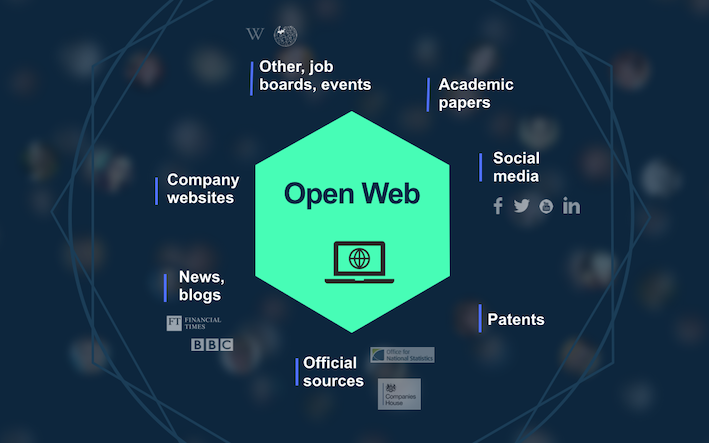Hard to Find B2B Data: PwC Uses Glass.AI to Discover Companies Adopting VR/AR Technologies.
With traditional lead generation tools, business development and marketing professionals can get lists of companies of a certain size, in a certain location and sometimes in a particular well-defined industry sector. Unfortunately, if you need to need to find a very specific set of targets or need a deeper understanding of what businesses do then these tools will struggle to help. This rich, often hard to find, business data does already exist though. We can find it on the Open Web.
The Web has become the world’s system of record and Google the tool of choice for researching it. If you have a question then an answer is likely to be found on the Web. As we have previously highlighted, this works when you are looking for a single simple answer, but if you want to use the data online to carry out more complex research — as marketers are likely to do when building a specific list of targets or companies — then you are likely to need to spend hours if not days in Google carefully crafting queries and looking through large numbers of results until you have collated sufficient results to begin doing the job you are actually trying to perform.
The marketing team at global professional services firm PwC had exactly this problem. They were interested in finding out which companies and industries are adopting immersive technologies like virtual reality (VR) and augmented reality (AR). They didn’t want a list of VR and AR companies, although that would present a challenge for traditional business databases as well, PwC wanted to discover the business applications of VR and AR and which companies were using them in different countries.
To do this they turned to glass.ai’s unique AI capability for web-scale language understanding to discover their hard to find data. The aim was to uncover the business use cases of Immersive Technologies.
By reading the websites of over 2 million UK companies and other sources like news and social media, the glass.ai technology was able to discover organisations describing the use and application of Immersive Technologies. Our system read the sites and could understand the context in which Immersive Technologies were being mentioned. This means it was able to distinguish between those companies that are creating immersive technology from those that are using it. Significantly the information about who is using VR and AR is not found in the description of the companies — because it is not core to what they do. You might find some of this type of hard to find data through tracking the news, but you’ll only pick up a small proportion of the cases that are available. To find all the use cases of interest requires a deep reading of web content and a technology that is able to understand the context in which the information of interest is being spoken about. In this case, results were found in the news, but also in case studies, quarterly reports, blogs, use cases, partner information, testimonials and other content on the sites that give a deeper insight into the areas that the business was involved in.
There are many other examples of hard to find business data online that can be found at the company level. For example, at glass.ai we have uncovered data around supply chains, emerging technologies, budgeting, performance improvement programs, operational issues, employee benefits among many others. This data allows businesses to better understand the sectors in which they operate, monitor their competitors, precisely identify new leads, and uncover new opportunities in their existing customer base.
You can explore here the PwC analysis of how UK organisations are using VR/AR. More countries will be launched soon, also using the glass.ai capability.



